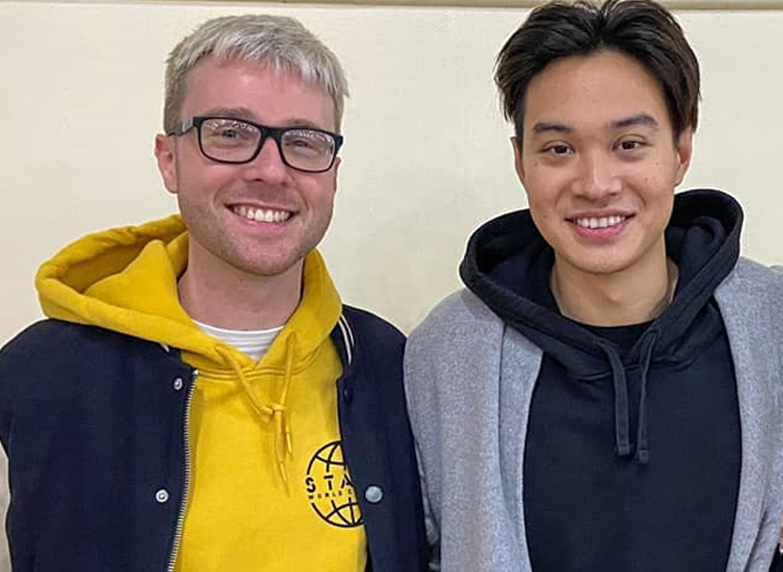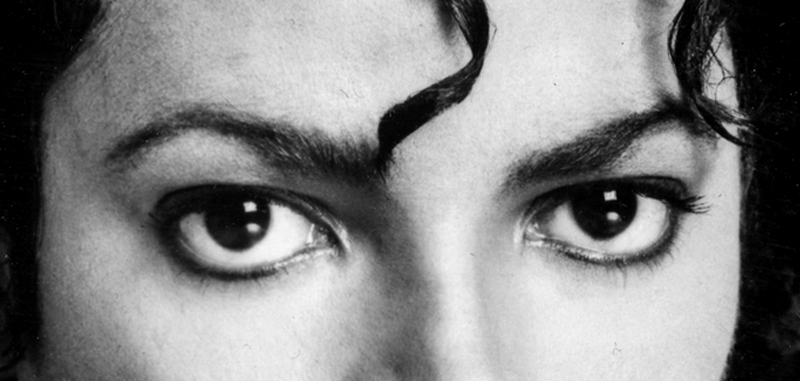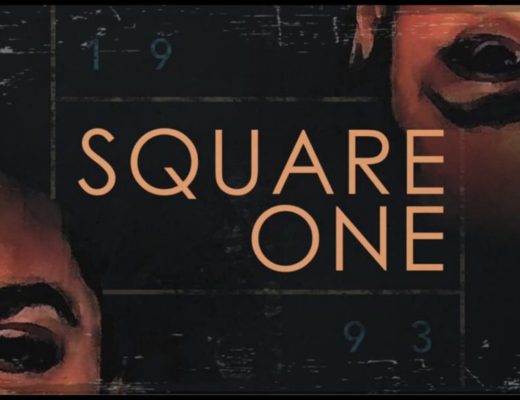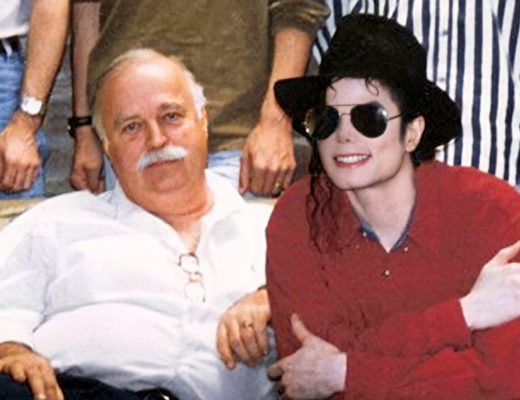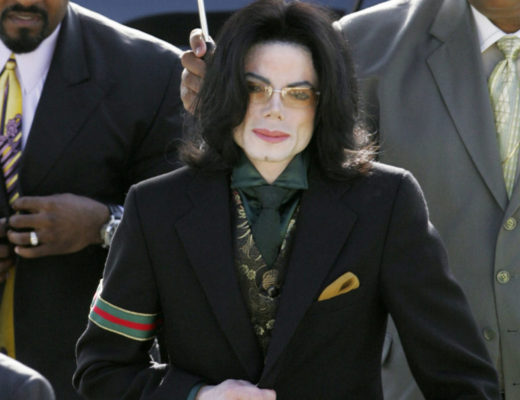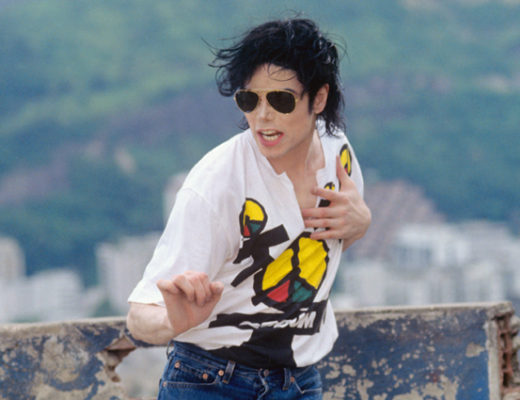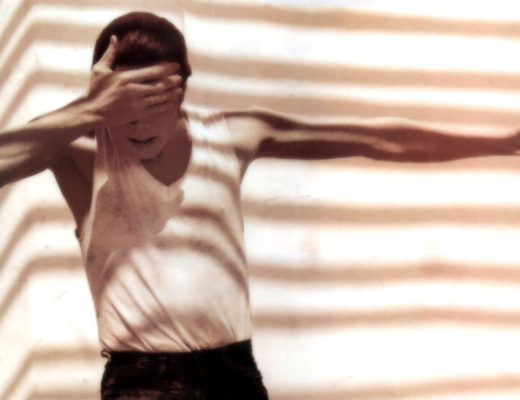When I was 11 years old my art teacher drummed into the class the mantra, “draw what you see, not what you think you see”. An interesting, yet ironically simplistic point that requires you to look intensively to find the finer details and not interpret something to suit your capabilities. While my art abilities aren’t exactly stellar, I have never forgotten this notion and how relevant it is to so many aspects of life in which it’s important to really look and study something and not just come to your own conclusion.
When it comes to the Jackson allegations, there’s a lot of ‘thinking’ that takes place – “I think he might have…”, “I think this song means…”, “I think he was…” – And yet, thinking isn’t required. You just need to look intensively at what’s there, not what you might think is there.
So aside from the hear-say and hoopla, what is there?
There are accusations against Jackson, there is the fact that no charges were brought against Jackson in the criminal case in 1993 (the settling of the civil suit had no impact on this), a verdict from the 2005 trial which deemed Jackson not guilty on all counts and then there is an array of material that can thoroughly disprove the fundamentals of the accusations against him. There’s not really a grey area. The FBI had no issue concluding the same after a 10-year investigation. Yes, there are certain things that appear unconventional – but not criminal, and these are also very clear points when understood properly and in context.
A common reply to these points is “well I believe that…” – the wonderful thing about a fact is that you don’t need to apply your own sense of belief. A fact is a fact. The heavy lifting has been done for you. That’s usually further met with “Well, I’m entitled to my opinion” – Sure, but when a fact renders your opinion null and void and can prove you wrong, if you’re insistent on sticking with your ‘opinion’ anyway, then this is not a discussion that’s being had on an intellectual level.
In the absence of research, Jackson’s public battering has taken place largely on the idea that “because I said so” is all that is required to make a judgement.
In a climate that seeks to convict on word alone, the allegations against Jackson are prime and none was so evident than in Leaving Neverland, a movie where two men and their families told a series of stories that on closer inspection, appear embellished, inaccurate or completely untrue. It was believed in its totality in spite of evidence proving otherwise. And yet, there remains this frankly bizarre idea that Leaving Neverland must not be challenged.
Why?
Surely discovering it’s not truthful wouldn’t undermine the concept of a documentary and create a distrust in the industry? Surely discovering it’s not truthful wouldn’t be damaging for victims of sexual abuse? Surely discovering its not truthful wouldn’t impact the multi-million dollar lawsuit Robson and Safechuck have taken out against the Jackson Estate.
Surely, surely, surely.
But as long as we just ‘believe’ everything we’re told and dare not challenge the narrative pushed out by the powerhouses behind Leaving Neverland, then we can deem ourselves experts, without a single piece of evidence to the contrary. Welcome to the dawn of a new-old age!
The problem with ‘belief’ is, at what point is it not enough? At what point must somebody stand up and say, “I need to validate this.” And while some would rather we live in Salem 1693, where we point, accuse and burn at the stake; we do need to validate claims. It’s part of existing in a civilised society. And seeking to validate what’s being said doesn’t make you an ‘apologist’ or a ‘truther’ – that’s dictatorial language. While it’s fundamental we listen to accusations of abuse to determine the outcome, it’s frankly dangerous to replace ‘listen’ with ‘belief’. It’s also perplexing that in 2020 this still needs to be explained.
Someone said to me “But I’d rather believe a potential liar, than support a potential rapist.” And therein lies the problem – that many would rather consider what’s going to make themselves look better in the long run. They feel that backing a ‘liar’ would offer better redemption in the face of public opinion – seemingly saying ‘we can all identify with the concept of lying so it’s easier to digest if we’re proved wrong’. But, this isn’t about saving face for you – this is about truth.
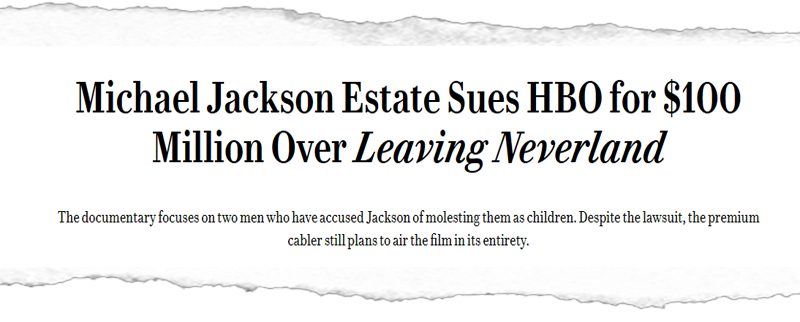
When Leaving Neverland dropped in early 2019, many looked to the Jackson Estate for some sort of rebuttal. The Estate was quick to launch a $100 million lawsuit against HBO, citing a breach of contract for the 1992 agreement the network had to screen Jackson’s Dangerous World Tour. The unprecedented figure ensured the story made major headlines around the world while firing a warning shot to other networks who consider doing the same thing.
While the Estate has insisted they’re working behind the scenes on damage control, there was a notable lack of anything in the mainstream that would help the public balance the negativity. Taj Jackson launched a crowd funder with the premise of setting the record straight and while that will no doubt serve as something that will be a staple in the fight against injustice when it comes out, something was needed immediately. Enter Square One.
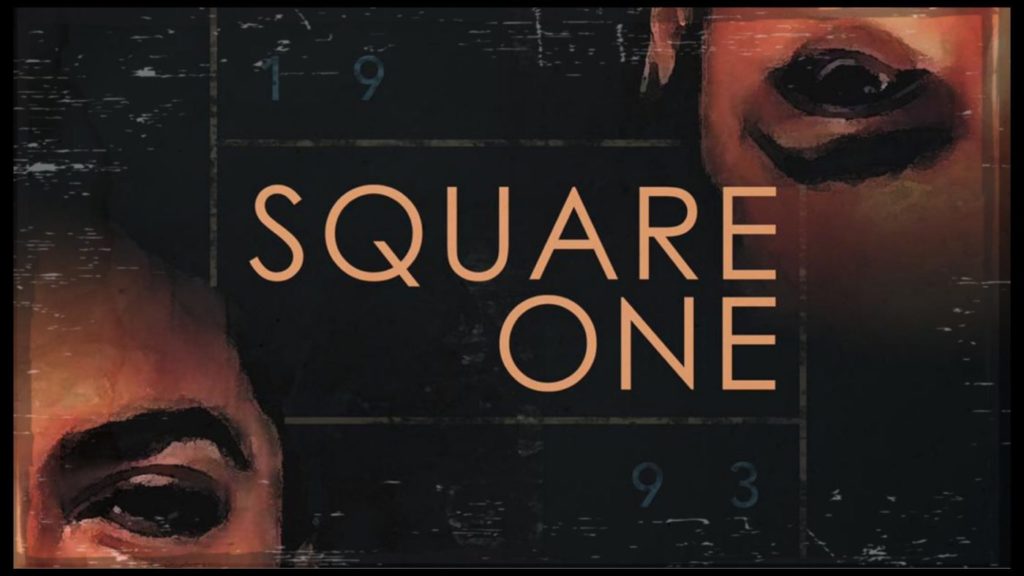
Earlier in 2019, Danny Wu had produced a YouTube video discussing the accusations put forward in Leaving Neverland and made mention of a new witness who had previously moved in the same circles as Jackson’s first accuser. The witness happened to be a Josephine Zhony, a public relations specialist who had several interacts with accuser Jordan Chandler years after his family accused Michael Jackson of child abuse.
Initially planned as a one-on-one interview with Zhony, Wu had no intention of making a documentary
“I was in a very unique position where I was able to interview a witness who had never told her story before,” said Wu. “I realised along the process that a one on one interview was not going to be enough, it would mean a lot for the fans, but for the neutrals, it was not going to be enough. Around the time there were a series of short YouTube documentaries that were very well made, I just thought, why not take it to the next level, why not make a feature-length documentary.”
What was interesting about Wu’s approach is in the idea that Square One was not an ‘answer’ to Leaving Neverland, it was about going back to the source of the accusations to help understand why Jackson has been continually tied to such claims. What it demonstrates is how people are far more susceptible to the idea of Jackson being an abuser, because they keep hearing it. It’s known scientifically as the Illusory Truth Effect, which is a tendency to believe false information as correct after repeated exposure. After over 20 years of repeated exposure, anyone coming forward with new claims against Jackson knows they are doing so under pre-emptive conditions.
So, with Square One’s position, if circumstances and fact can at the very least create doubt upon those initial accusations, then the rest should also be viewed under scrutiny. Because Square One doesn’t emphatically or boldly suggest Michael Jackson is innocent. It simply presents the facts of the case which allows the viewer to reach their own conclusion. And that’s exactly why we’re seeing viewers in their droves affirm their belief in Jackson’s innocence. They can see facts, they can comprehend the timeline and better still, all the information presented is information they can go and locate for themselves. There is no smoke and mirrors. There are no discrepancies in Jackson’s whereabouts. There are no claims made in buildings that didn’t exist.
It doesn’t need to force the viewer to accept Jackson’s innocence, it just needs them to comprehend the facts, which ultimately points to Jackson’s innocence. Unlike Leaving Neverland which relies on a cognitive bias to run its narrative.
While Leaving Neverland came in like a hurricane attempting to destroy everything in its path, Square One is a quiet storm. Of its own volition, it reached number one on Amazon Prime’s documentary chart. “The goal from the very beginning was always to end up on a platform like Amazon Prime or a video-on-demand platform,” says Wu. “By the time I released the trailer, I had prematurely put out the Youtube release date. When I was in London, I met someone who worked in film and he said if I wanted to get it on Prime, I’d need to take it off of Youtube one day and that was something I really didn’t want to do. But, we made a more polished version of Square One with some changes and submitted it to Amazon Prime and luckily, that was the easy part. To see the success it’s had now, that’s the mind-blowing part.”
With its new home on Amazon Prime, Square One is finally reaching more people and when compared to Leaving Neverland, it is really a story of David Vs Goliath. Square One was made by an independent filmmaker, on a shoestring budget with no media or mainstream backing and found its way onto Amazon Prime through Wu’s commitment to what he created. Whereas Leaving Neverland had the financial backing of two massive corporations in the UK & U.S, prime time programming slots, Extensive PR agency support, mainstream media private screenings, and a Sundance premiere. It was further supported by interviews on all major news outlets, a post-movie special and buy-in from major entertainment industry figures. Its director bounced from channel to channel making false and inflated claims as if he was also one of Jackson’s accusers while suggesting the Jackson Estate were a powerful entity to be reckoned with. It’s fundamentally flawed to suggest the Jackson Estate are ‘powerful’ and ‘merciless’ in dealing with these accusations when Leaving Neverland used the power and money of the aforementioned networks to bring the majority of the mainstream media to heel. And anyone who dared suggest the movie was anything other than truthful in its entirety was shut down, dismissed and silenced. That’s the power Leaving Neverland wielded.
Yet, it is now referred to as an ‘award winner’, as the giants behind HBO and Channel 4 evidently threw their weight, PR agencies and most likely their cash, to ensure a ‘win’. It won an award for ‘editing’ despite continuation issues set 17 months apart and having been exposed for manipulating footage to appear damning.
By contrast, Square One hasn’t received or purchased any awards because the truth doesn’t seek a glorified door-stop to stick on the mantelpiece. It’s as if nothing says “healing” quite like the constant reminder of your “experiences”, sitting above the fireplace in your lounge! If that doesn’t demonstrate the intent of Leaving Neverland to those who refuse to read a court transcript, then ultimately nothing will.
Square One’s success lies in the fact it managed to achieve its listing and growing acknowledgement without buying its way into all forms of media. Like a well-constructed documentary, it relies on facts through an in-depth timeline, supported by research, key accounts and first-class journalism. It doesn’t leave anything out in favour of what would appear more convincing and it doesn’t attempt to manipulate the viewer – it just presents you with the facts. While Wu’s tactic could have been to present account after account of former Jackson friends and associates looking emotionally into the camera and regaling the viewer with tales of Jackson’s generosity and friendship; he rightly chose to spare us the emotional manipulation in favour of simply presenting the case – and here’s the best part – it can all be backed up with evidence. Which is ultimately why it continues to inspire social media statements from individuals reversing their opinion having now seen both. It provided the crucial part of the discussion that was needed, something Leaving Neverland deliberately chose to omit – balance.
In the year since, so much has come out to disprove so many of the allegations, yet in a race to the top, it’s astonishing to me that not a single top-level journalist from a leading media outlet has thought to crack open Leaving Neverland and address the 60+ discrepancies in the movie. It could be an award-winning story, based on research and facts, not opinion. What are they afraid of? Or more importantly, who is preventing them? It’s also fundamental to notice that while claiming to have integrity, no mainstream journalist gave the same effort, attention or merit to Square One. Where was the coverage from Good Morning America? NME? Sky? CNN? TEN? All were so keen to discuss Jackson in detail just months prior, yet on the rise of Square One, again silence. It’s glaringly obvious Jackson is only a good topic when a lean towards guilt is central to the discussion, not a fully researched, fact-based documentary which highlights the truth behind the years of allegations.
Any mainstream journalist who gave Leaving Neverland its 5 minutes but refuses to do the same for Square One is demonstrating their bias and refusal to really look into the case. And it’s somewhat understandable. If you were somebody who sat and invested four hours in a movie that reduced you to tears or invoked repulsion, admitting that you have been duped is something that many lack the will-power to acknowledge.
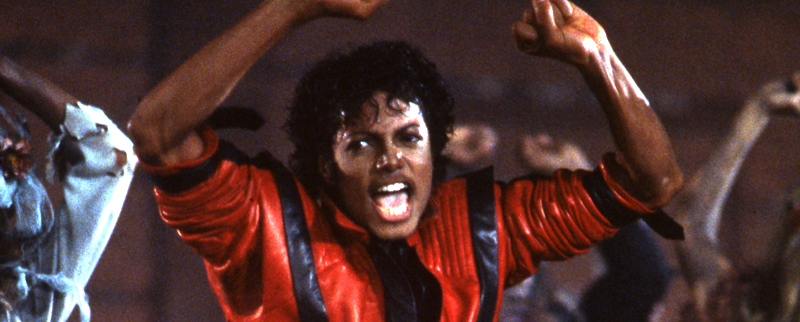
Instead, they’ve developed this frankly bizarre concept of ‘separating the art from the artist’ in an attempt to appear to approach the debate on an intellectual level, when in actuality it was nothing more than trying to want the best of both worlds. Those pushing this ideology wanted to be able to throw up their zombie hands to Thriller on Halloween safe in the knowledge they’d convinced others it was ok to do so because we’re enjoying ‘the art, not the artist’.
It’s ridiculous.
Anyone who thinks you could take Michael Jackson out of Thriller is probably already aboard a sailboat looking for the edge of flat earth!
If you truly believed that Michael was guilty of such heinous and monstrous things, why on earth (round, not flat) would you want to still listen to the music? And this is something Jackson’s fans have been saying all along. They don’t defend him because they ‘like the music’, the music doesn’t even come into the discussion of the accusations against Jackson, it has absolutely no weight in building the facts and evidence in the case.
The major challenge Square One, and indeed Jackson’s Estate face is entering the battle of feelings with cold hard facts. And that doesn’t make you popular. Nobody wants to be the person telling a crying athlete who lost the race, “Sorry, but the fact is, you just weren’t fast enough!”
But with allegations as serious as these, how the movie made you ‘feel’ is redundant, especially when the accused is not here to defend themselves. A quick look across much of the coverage from Leaving Neverland was self-important op-ed pieces about how the journalist was made to ‘feel’ based on what they’d been told and not what the facts were. After all, telling your audience you’re seeking $1.6 billion from the Jackson Estate is not going to have audiences crying and marching to twitter to express their distress.
So what happens next? In the year since the release, there have been requests from the Jackson fan community for Wu to follow up Square One with another documentary – a question I put to Wu who insisted “I’m always very flattered when fans tweet me asking for a Square One – Part 2, it warms my heart that the fans place so much trust in me to do something like that, but in my opinion what makes Square One so special is, it’s not a rebuttal documentary and it’s not a counter documentary. We tell our own story, so I think that’s one of the reasons it has resonated with neutrals so much – it’s not been told before.” And Wu is right. Whereas Leaving Neverland treated the public like geese being forced fed to make foie gras, Square One gently nudges the viewer on to the path where they suddenly realise the entire misconception they’ve been exposed to all this time. To force-feed them with yet another documentary would start to feel like agenda pushing. Additionally, Wu explains that as an ambitious filmmaker, he’s keen to explore other topics outside of the Jackson realm and develop his craft.
Asked what he sees as the legacy of Square One, Wu points to the change in the way we view and consume media, “we don’t have to listen to the same select voices of the news” he states “if you want to make a change and tell your story, there is an opportunity.” Additionally, he acknowledges the sheer organic force behind Square One’s elevation “the fans who sacrifice their time spreading the film through word of mouth, the individuals who translated Square One to include different subtitles, journalists who stood behind the film, the cast who stakes their career reputation to tell their stories, my two incredible associate producers who have dedicated months to researching, the legacy is theirs. They are the legacy.”
However, the most important point Wu shared as we look at the enormous task Square One has taken on, was in its ability to break through the mainstream: “I would like it to be remembered for the impact that a micro-budget documentary film can have in one of the most gatekept industries.”
